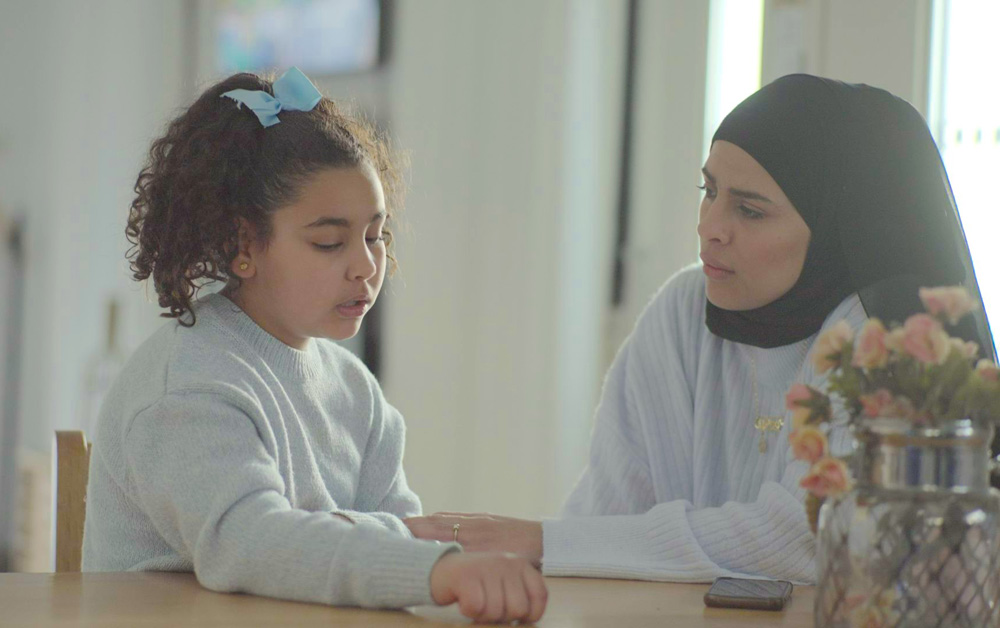Marwa has a choice to make near the beginning of “Mourning in Lod,” recounting how her husband Musa died in the city 30 miles west of Jerusalem where Arabs and Jews peacefully coexisted for years before the terrorist activities of Hamas put the region on edge and Israeli police brought in to keep the peace only heightened tensions as nightly violent skirmishes in the streets between the two sides commenced. The couple’s young daughter can be seen wandering into the room as Marwa speaks, and when her mother is obliged to show footage from the night that Musa didn’t come home, the kind of surreptitious cell phone evidence that would make Musa a martyr among the Arab community when it went viral, showing how he was killed for no reason and inspiring hundreds to march in the streets in his name though they’d know him no more than those who would cheer his death, she doesn’t want her daughter to see it, making her another person without a full picture, even if it’s for completely understandable reasons.
In a situation where film can create an exchange that now seems impossible in reality, director Hilla Medalia crisply expresses the unquestionable common ground that Israelis and Palestinians share as violence in the region has destroyed families at random, ensuring at least one future generation suffering if not more for aggression they want nothing to do with. After spending time with Marwa, the director devotes equal time to Irina, the wife of Yigal, whose story is eerily similar to that of Musa’s, though the reason he was prevented from making his way home from a torah scroll dedication was due to the protests that accompanied Musa’s funeral that he feared would turn dangerous. Both men leave behind wives and children still grappling with the loss of their patriarch, and the disarray that their families experienced in the emergency rooms where they took their last breaths has only continued because of the political conversation that continues to swirl around their deaths, leaving those closest to them hurt and confused, unable to heal any wounds when public discourse keeps reopening them.
A lot of filmmakers might have been satisfied by drawing such a strong parallel between Musa and Yigal, but “Mourning is Lod” is especially moving when Medalia goes one step further to introduce a third main character in Randa, an Arab Christian mother who is connected to both men in different ways and like both of them has ended up in a hospital, albeit not because she’s been attacked but for kidney failure. Although Musa’s father Abed and Yigal’s brother Efi both show up to speak, it’s striking that women’s testimonies form the backbone of the film when Randa, along with Irina and Marwa, looks to be thoroughly done with the past even as she’s recounting it and remembering seems counterproductive to being there for her child. When the horrors of the conflict and the sheer number of people that have been affected by it can be overwhelming, the three individual experiences shared in vivid detail with a great deal of care has a direct, undeniable power and arriving in theaters as the Gaza Strip is front of mind for so many, “Mourning in Lod” counters thoughts of carnage that seem impossible to quantify, let alone resolve, by getting its arms around the usually less acknowledged toll it takes on people left to carry on after incalculable loss, observing that one of the greatest responsibilities they take on as they grieve is resisting the temptation to give in to anger.
“Mourning in Lod” opens on April 19th in New York at the Quad Cinema and Los Angeles at the Monica Film Center. It will be available to stream on Paramount+ starting May 17th.




